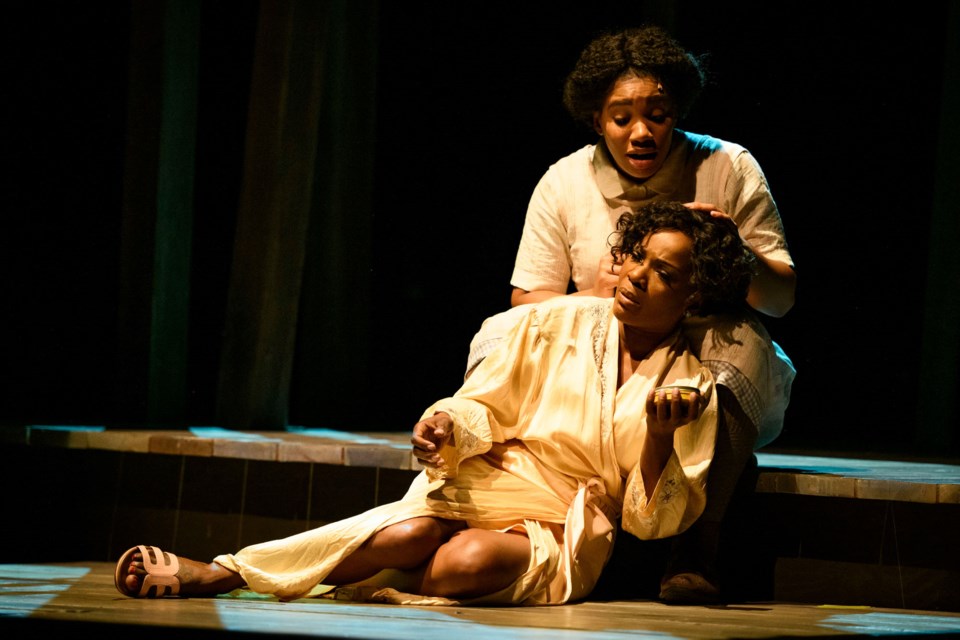REVIEW
The Color Purple
Running until Sunday, Oct. 13
Citadel Theatre
9828 – 101A Ave.
Tickets: Call 780-425-1820 or email [email protected]
Poverty. Incest. Rape. Domestic violence. White discrimination. Black patriarchal culture. Religion. These are the ingredients forming Alice Walker’s Pulitzer Prize-winning novel The Color Purple.
It’s the story of one woman’s survival against all odds and how she miraculously influences those around her. The Color Purple’s dark subject matter and the abuse is difficult to digest when read in literature, let alone as a lighter musical.
Yet director Kimberley Rampersad hit the nail squarely on the head as the theme of female empowerment clearly resonated with the Citadel Theatre’s opening night audiences who jumped to their feet and applauded long and loud.
At the story’s centre is Celie, a Southern teenager who gives birth to two children by her father by the time she’s 14. Pa grabs her babies and either gives them away or kills them. He never tells her. The horror she endures is unimaginable.
And in a moment of fiendish delight, Pa forces his daughter into a marriage with Mister, a whip-wielding husband who treats Celie like a slave and reminds her regularly that she is ugly, poor, black and trapped.
Set designer Brian Perchaluk has created a sepia coloured terraced set with several pieces of lumber reflecting the protagonist’s downtrodden, prison-like world.
A fresh palette of colour only becomes prominent in the second act when Nettie, Celie’s long-absent sister, writes letters about her vivid life in a small African village.
Leading the cast of this heart-clutching gospel-flavoured musical is the luminous Tara Jackson, a woman whose metamorphosis from a tyrannized girl to confident seamstress is completely believable.
Initially Jackson slumps her shoulders and hides her face in an attempt to appear completely invisible. But as Shug, Mister’s mistress, encourages Celie to view herself in a different light, our heroine slowly discovers an inner courage and ends the victimization.
Karen Burthwright is the earthy Shug, a charismatic nightclub singer unapologetically driven by her desires. The high points of the two women’s relationship are related through music and Burthwright’s deep, torch vocals contrast fluidly with Jackson’s velvety blues and jazz belts. Both bring the house down.
Creating a villain that generates sympathy can be nearly impossible, yet Ryan Allen’s Mister slowly reveals that he, too, is damaged. When Mister’s whip cracks throughout the theatre and Celie cries out, it’s a punch to the gut.
That split-second action creates instant antagonism towards Mister, yet Allen digs deep and fashions a multi-dimensional character erupting from personal pain and anger.
Janelle Cooper’s Sofia is a bold, brassy woman who suffers outside physical abuse from whites. Paired alongside her is Andrew Broderick as husband Harpo, an easy-going, loving husband who remains deeply committed despite ups and downs.
In fact, the entire 16 member cast is a polished triple-threat that hits all the right notes in perfect synchronization.
The Color Purple is an important story to tell, however by focusing mainly on songs, it glosses over the scale of Celie’s abuse and waters down the emotional core.
Nevertheless, this production soars and makes an important statement we should pay attention to.




